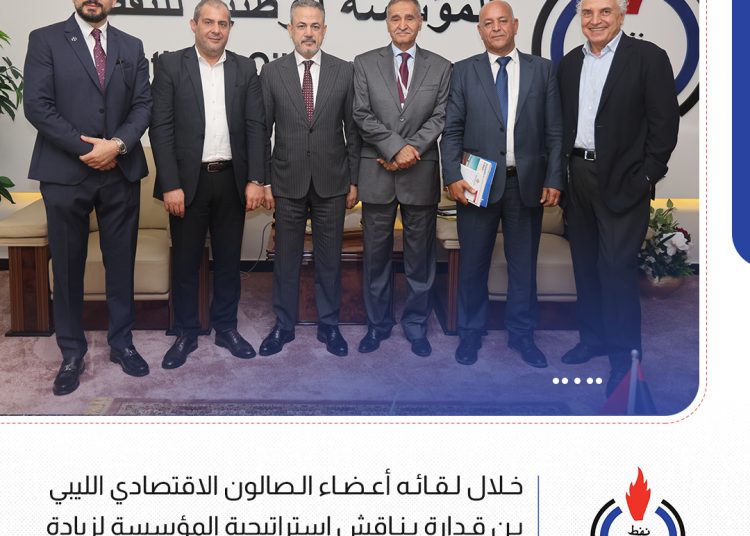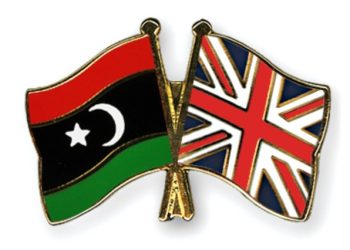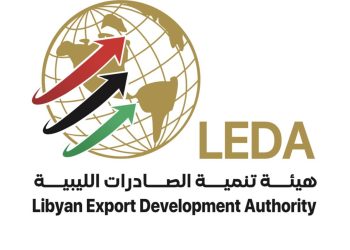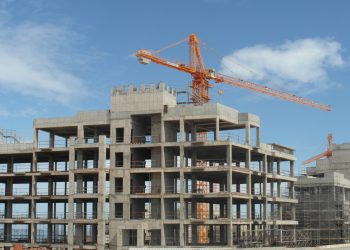The Chairman of the state National Oil Corporation (NOC), Farhat Bengdara, hosted Tuesday at the NOC’s Tripoli headquarters, several members of the NGO, the Libyan Economic Salon. The NGO is made up of several influential members of Libyan society interested in economic reform, including businessmen and experts in the fields of management, economics and law.
The meeting discussed several topics related to the oil sector, most notably the NOC’s strategy for development, increasing production rates, and the possibility of financing the oil sector from outside the state budget.
In an exclusive interview with Libya Herald, the Executive Director of the Economic Salon and Professor of Accounting at the Academy of Graduate Studies, Dr. Abu Bakr Abu Al-Qasim, said that several files were raised during the meeting.
A comparison of the NOC with other models
The most important of which was the current model of the NOC and comparing it with other models such as Saudi Aramco, Sonatrach of Algeria, or Statoil of Norway. In particular, what distinguishes these international models from the Libyan model, and the possibility of restructuring the NOC and its subsidiaries to transform them from cost centres to profit centres so that they have independence and are capable of financing themselves without waiting for budgets from the state.
State oil companies have no profit and loss
Abu Al-Qasim and the members of the salon regret that the NOC and its subsidiaries are nothing but cost units with no ownership of assets and liabilities, without profit and loss accounts. He said budgets are allocated to them and the impossible is asked of them despite their legal name being ‘‘companies’’, but in reality, it is as if they are not a company but an institution or an administrative body or unit affiliated with the government and funded by the government with government budgets.
No financial independence from the state
This, Abu Al-Qasim continued, made the state oil companies limited in their powers, and their relationship with the legislative and executive authorities did not grant the independence granted to many of its counterparts in countries around the world. Therefore, he explained, they operate only as a department in the government to which budgets are allocated, and they are not financially independent or based on profit and loss, even though by law they have independent financial liability. However, they manage their funds within the limits of government budgets allocated and subject to the oversight of the Audit Bureau and the government. Therefore, the salon members proposed the necessity of changing the model to ensure proper workflow, development and monitoring.
More transparency requested from Brega – Bengdara responds positively
Abu Al-Qasim referred to the request submitted by the Salon to the NOC regarding obliging it and its subsidiaries, especially the Brega Oil Marketing Company, to publish all statements and information about production and the share of the foreign partner. This would include marketing and barter data, prices, revenues, expenses, and allocations for fuel products and gas for each sector: electricity, industry, cooking, private and public transportation, etc., to increase transparency and openness to society. In a positive response, Bengdara agreed to the request, the Abu Al-Qasim reported, instructing the administration to publish information on a daily, monthly, and quarterly basis.
Fuel supplies accounted on a barter basis
Regarding the method of bartering or reserving the value of fuel supplied at the source without transferring the value to the government’s account in the Central Bank of Libya, which may represent 30 percent of production, and in return, buying fuel through allocations that are not provided in the general budget, Abu Al-Qasim said that Bengdara reported that the problem is in the existing political division.
To avoid fuel shortage chaos
Bengdara said, he revealed, there is no approved budget for the Tripoli based government by the House of Representatives that enables the Central Bank of Libya to allocate money to import fuel. The NOC and Brega Company have two options, he said: “create a crisis and chaos during the disappearance of fuel or take measures.” The alternative may not be in line with the law, and the second was chosen since September 2021 so as not to cause chaos as a result of the cessation of fuel imports, Bengdara said.
Bengdara wants to end fuel barter system
Bengdara confirmed that the NOC wants to get rid of this burden imposed on it by the political circumstances and the state of division in the country, meaning that they entered into the barter process under duress, due to the Libyan reality, the head of the corporation requested, in a letter to the head of government, that it undertake this task of supplying fuel, out of their desire to get rid of this burden.
Fuel subsidy reform needed urgently
Regarding the quantities allocated for subsidies, which may represent 30 percent of oil production, the costs exceeded 13 billion dollars during this year.
Abu Al-Qasim said, “It was agreed that this file should be addressed as quickly as possible, as it represents a drain and a source of theft, smuggling, and irrational extravagance with this bill, which is paid by the entire Libyan people.”
Cost of extraction of Libyan oil will decrease with increased production
Regarding the lack of budgets and the necessity of involving the private sector in order to finance from outside public budgets, Abu Al-Qasim confirmed during the meeting that Libyan oil costs $16 per barrel, while Saudi Arabia, for example, costs $9 per barrel. This is due to the large difference in quantities between the two countries. Therefore, when production increases to the level of 2 million barrels, we can move the cost from $16 per barrel to only $10 per barrel as a result of increasing this amount for each barrel extracted to cover the costs of production, operation, and investment spending.
Marginal wells to be offered to the private sector
The head of the NOC also reportedly said that they have a ready plan to open marginal wells (marginal fields) for the Libyan private sector in order to build local expertise for the private sector in the oil sector, whether Libyan sector companies or through partnerships with foreign companies.
45 projects at US$17 billion agreed for increased oil production: But how?
The meeting also discussed the NOC’s plan to increase production to 2 million barrels per day and invest in 45 projects at a cost of $17 billion. The plan was approved by the government, and the corporation is still negotiating with the government regarding the financing process for this, whether it is funding from the government and alternatives to financing from outside the state’s general budget or shared between them.
Roundtable to be organised for further discussion
In conclusion, Abu Al-Qasim revealed the proposal submitted by the Chairman of the NOC regarding organising a round table that includes “the legislative and executive authorities, the NOC, Brega Oil Marketing Company, and fuel distribution companies, along with contractors and members of the salon.”
The roundtable will also raise awareness of what was presented during the smaller meeting with the NOC and to suggest solutions, especially with regard to “the NOC’s financing model for its projects, and the role of the private sector,” and the current topic of “replacing subsidies.”
The Economic Salon
It is worth noting that the Economic Salon is a civil society institution, that started off as a virtual space (a WhatsApp Group) in a state of dialogue that deals with everything related to economic affairs.
The Salon includes more than 200 members from various fields – parliamentarians, executives, former ministers, academics, and consultants in various specializations of administration, law, accounting, industrialists and businessmen. Bengdara was also a member.
The goal of the salon is to engage in dialogue and propose economic solutions to get the nation out of its crises, as it believes that the common denominator of all conflicts is that reforming the economic system is the engine of salvation for this country.









